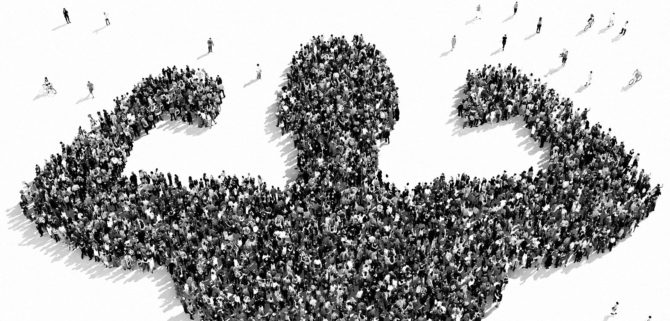Been a few references in the past couple of years to inclusive prosperity. You can probably figure out what that term means, but in short, it’s the idea that more people can become rich.
Let’s level-set this for one second. In January 2015, John Cassidy of The New Yorker wrote an article about inclusive prosperity, arguing it would become a central issue of the 2016 Presidential election. It semi-did, but in reality Trump framing the issue as “us” vs. “them” changed the game there. Ironically, someone who’s a billionaire was able to cast himself as an outsider. Not sure how being a billionaire in a capitalism makes you an “outsider,” but OK. That happened.
As of May 2016, there were 10.4 million millionaires living in the United States. There are 321 million people in the U.S., so that’s about 3.2 percent. (Maybe we should change the “1 percent” title.) Now of course, there are people making $500,000 a year — not millionaires — living very comfortably. I get that.
If only 3.2 percent of a country is getting to that level (which is still pretty good, obviously), then we don’t necessarily seem to have “inclusive prosperity.” We certainly have a ton of rich people in our urban centers, and that’s good — but back to this 2016 election for a second. Every post-mortem you hear on that one is “People were angry” or “People feel left behind.” That doesn’t exactly speak to inclusive prosperity.
And now, the fly in the ointment: is an idea like inclusive prosperity even psychologically possible?
Do the rich even care about the poor?
There’s been much evidence in the past few years that the rich scientifically don’t care about the poor, including this article in The New York Times and this one in Upworthy. That latter article kind of turns “basic humanity” on its head, arguing that caring for others is not core to the human experience.
This article on HBR about making economic growth more inclusive runs down a bunch of examples of rich people — i.e. Elon Musk — opening up contests to solve problems designed to create better, high-paying jobs. That’s cool and I respect it, but is that happening at scale? No.
Up at the top of that article, the author notes this:
Case in point, even if everyone benefits from the freer flow of information allowed by the internet, information alone can’t pay your heating bill or buy a new transmission for your car. As the costs of things like phone calls and televisions have dropped, the cost for basic necessities like food and housing has soared.
That’s the core of the issue right there.
Inclusive prosperity and economic stagnation
Here’s Problem 1, IMHO: companies used to be the path to “get a good salary/career.” They are no longer that. In fact, companies — typically massively cost-averse — are now making economic stagnation worse.
Think about it: if you work at a place eight years (which is double the average time in a job in North America now), you probably get 6-7 “cost of living” increases and maybe 1, 2 raises. If you came in at $75,000, you might leave at $90,000. This obviously varies by industry but to say promotions are given out like candy would be incorrect in most industries.
The big exception, in America at least, is jobs where you make other people more money (finance, consulting, etc.) If you can make other people money, you’ll do alright by yourself.
Inclusive prosperity and business competition
Scroll back up to that pull quote above. Information is super free these days. As a result, people should be taking the information and collaboratively working on problems together — like maybe the idea of re-creating the middle class.
Nope.
Instead most companies are still hyper-focused on business competition and “crushing their rivals” for 1 percent of market share. Creating enemies is very important to the corporate psyche.
Put this all together
We’ve got evidence that:
- Rich people scientifically don’t care that much about the plight of poor people
- Companies are now somewhat designed to keep salaries down as much as possible
- Capitalism is an animal
- It’s all about competition and beating back rivals
Now add these two kernels:
- The workaholic is a deity to most (Why do you think everyone constantly tells you how busy they are?)
- Most definitions of success are quantitative (big house, nice car, hot wife) beyond anything else
At the intersection of all these issues, could inclusive prosperity really emerge? I personally wouldn’t think so.
A final nugget to consider
In some ways this is the most socially-isolated time in American history, and more people are nervous about their future than ever before. (Both per research.) Why do you think we feel isolated and nervous? Is it maybe because of all this stuff — housing/food go up, but salaries don’t? I’d have to imagine that’s part of it. Oh yea, and robots maybe coming for our jobs! Fun times.
Inclusive prosperity is a great idea on face, especially to a liberal buffoon such as myself. But is it psychologically possible? Would the people currently in control even want it? I’d have to guess negative on that one.
Any other thoughts on inclusive prosperity?
